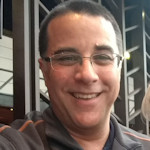
Bruce Webster

Kris Frederickson

Mike Parker
You can listen to or download the September 16 broadcast of the Interpreter Radio Show below. It will also be included in our podcast feed (https://interpreterfoundation.org/feeds/podcast). Hosts were Bruce Webster, Kris Frederickson and Mike Parker. Topics discussed included the protests and excommunication of Sam Young, General Conference speculation and discussion and keys for understanding Isaiah.
The Interpreter Radio Show can be heard Sunday evenings from 7 to 9 PM (MDT), on K-TALK, AM 1640, or you can listen live on the Internet at ktalkmedia.com. Call in to 801-254-1640 with your questions and comments during the live show.
Original air date: September 16, 2018. This recording has been edited to remove commercial breaks.
Audio Player Podcast: Download (Duration: 1:32:26 — 10.6MB) |
The Interpreter Radio Show is a weekly discussion of matters of interest to the hosts, guests, and callers of the show. The views expressed on the Interpreter Radio Show are those of the individuals involved and do not necessarily reflect the views of the Interpreter Foundation, nor should statements made on the show be construed as official doctrinal statements of the Church.



There was an article I read while at BYU, that I came across, in BYU Studies, written by Alvin R Dyer, “I think that by the end of the millennium, for those who will occupy the celestial kingdom, the home will be the only media of teaching children. Teaching will be through the family. You may note that Jeremiah said that the time will come when no man will teach his neighbor. To me this means the teachings will come fundamentally through the unit of the family. But I think there will be central places where instruction will go forth, directed to the family level. Thus there will no doubt be sources of information for the family. It will be the father and the father’s father who will be doing the teaching. In ancient times the fathers were the Instructors, meaning the patriarchal fathers–it will be the same during the millennium. (Education: Moving Toward and Under the Law of Consecration, BYU Studies, Autumn 1969)”
Maybe that’s a source of the idea that the Church will reduce Sunday meetings to 2 hours?
I wish I could have called in during the short segment discussing the new LDS global hymnbook. Back in August I attended the BYU Organ Workshop, and they had Stephen Schank “Music Manager” from the church’s music committee speak to us about the forthcoming hymnbook. He asked us all to help him address the apparent kerfuffle being generated by some members that the hymnbook will no longer contain our national anthem.
No one is going to take away the national anthem. The new hymnbook will of course appear in print form, (probably without the American national anthem) but paired with the internet, the new church hymnbook will be a sort of “open cannon.” There will be approved songs for different communities and nations, available online. Yes, Americans will still be able to sing their national anthem in church around the 4th of July. Other nations and cultures will be able to sing native appropriate songs in church. Brother Schank related that when the current hymnbook came out in 1985, the Tongan Saints were asked to use it and give up their customary songs. Brother Schank said they gave up a lot and didn’t feel they got much in return. The new hymnbook will restore some of those songs to them. We don’t realize how cultural music is, I think. I am the organist for a Spanish ward in Utah, and I had to explain to my Columbian friends why Americans even sing the national anthem in church. They never thought to do it in Columbia.